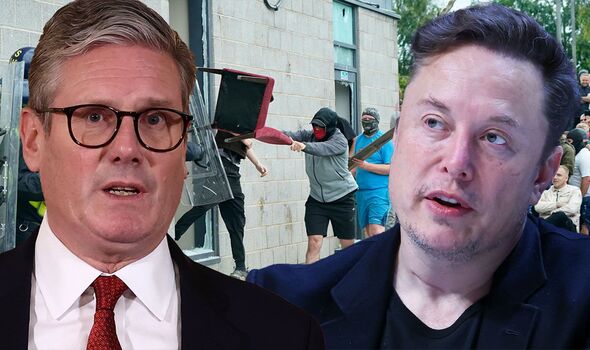Sir Keir Starmer has sharply criticized comments made by Elon Musk suggesting that “civil war is inevitable” following recent violent unrest in the UK. The remarks, posted by Musk—owner of the platform X (formerly Twitter)—came in response to a video showing fireworks being aimed at police.
The prime minister’s spokesperson condemned Musk’s statements, declaring that there is “no justification” for such comments and emphasizing that social media companies have a significant role to play in managing misinformation. Justice Minister Heidi Alexander also labeled Musk’s remarks as “totally unjustifiable” and “pretty deplorable.”
The unrest in the UK, now persisting for nearly a week, began after a tragic stabbing in Southport that resulted in the deaths of three girls. This incident sparked widespread disorder across England and parts of Northern Ireland, driven by misinformation online, far-right rhetoric, and anti-immigration sentiment.
Musk’s comments have continued to fuel controversy. After Sir Keir Starmer condemned attacks on mosques and Muslim communities, Musk responded by questioning why the Prime Minister was not equally concerned about attacks on all communities. Additionally, Musk has suggested that the police response to the unrest appears “one-sided.”
Heidi Alexander criticized Musk for his influence and responsibility given his large following of over 192 million users on X. She stressed that his comments undermine the work of police officers who strive to maintain law and order. Alexander also noted that accusations of two-tier policing in the UK were “baseless” and detract from the efforts of law enforcement.
The government has called on social media companies to act more responsibly in curbing the spread of hateful misinformation and incitement. Technology Secretary Peter Kyle revealed that he met with representatives from TikTok, Meta (Facebook’s parent company), Google, and X to discuss their responsibilities in stopping the spread of harmful content.
Home Secretary Yvette Cooper has also emphasized that the government will not tolerate “armchair thuggery” and stressed the need for social media platforms to address posts encouraging criminal activity. The Online Safety Act, which will soon require social media firms to take stringent actions against illegal content, is expected to enhance measures against “racially or religiously aggravated” offenses and incitements to violence.
Sir Keir Starmer reinforced that “criminal law applies online as well as offline,” underlining that legal accountability extends to digital platforms as well.


